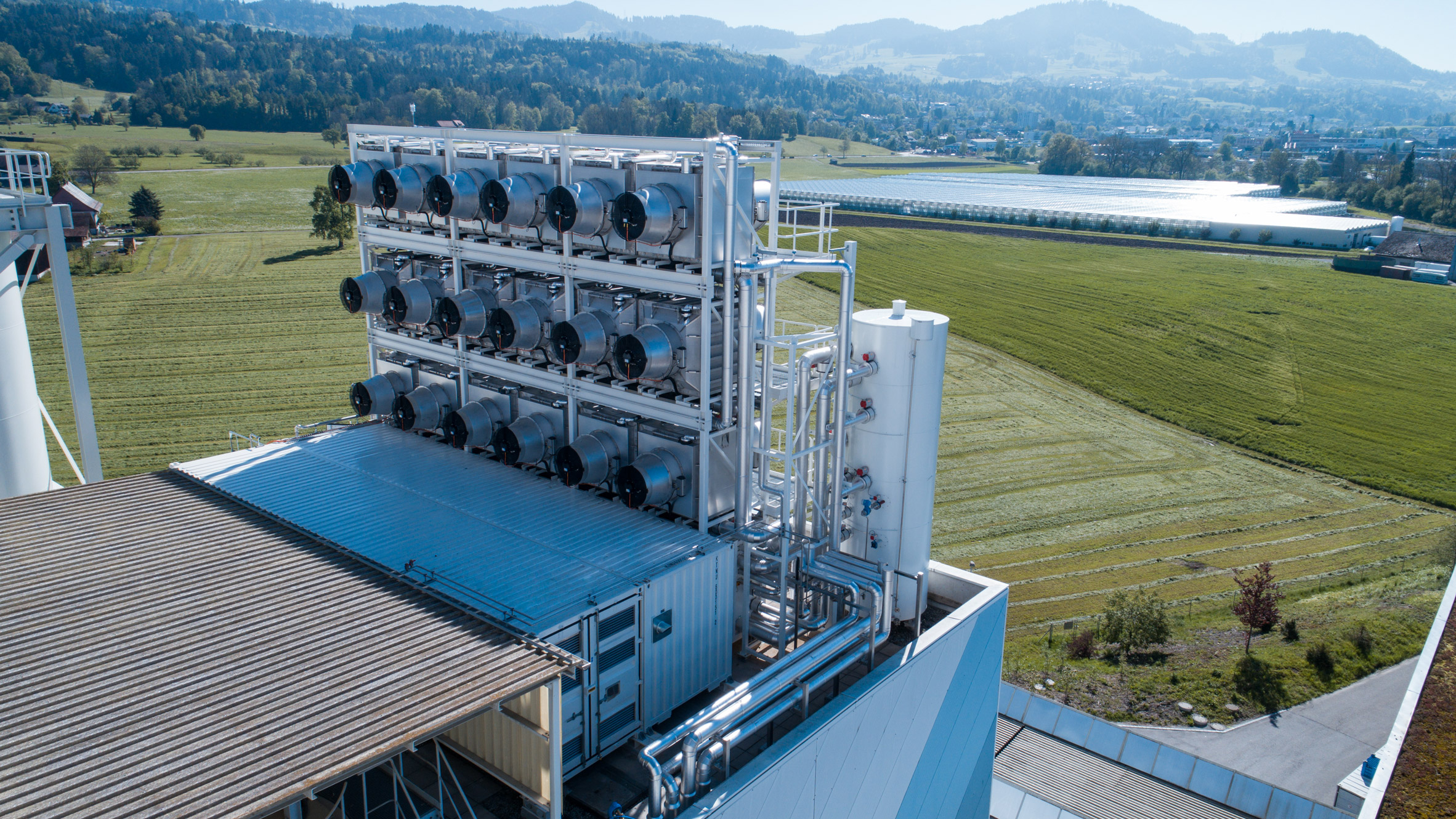Yesterday, the world’s first commercial carbon capture plant began sucking carbon dioxide (CO2) out of the air around it. Perched atop a Zurich waste incineration facility, the Climeworks carbon capture plant comprises three stacked shipping containers that hold six CO2 collectors each. Spongey filters absorb CO2 as fans pull air through the collectors until they are fully saturated, a process that takes about two or three hours.
The container then closes, and the process reverses. The collector is heated to 100 degrees Celsius (212 degrees Fahrenheit), and the pure CO2 is released in a form that can be buried underground, made into other products, or sold.
According to Climeworks, the startup that created this carbon capture facility, hundreds of thousands more like it will be needed by midcentury if we want to remain below the limits set by the Paris Agreement. However, to keep the planet’s temperature from increasing by more than 2 degrees Celsius (3.6 degrees Fahrenheit), we’ll need to do something more than simply lowering global emissions.
“We really only have less than 20 years left at current emission rates to have a good chance of limiting emissions to less than 2°C,” Stanford Woods Institute for the Environment director Chris Field told Fast Company. “So it’s a big challenge to do it simply by decreasing emissions from energy, transportation, and agriculture.”
Reducing Global Emissions
Other innovative efforts to reduce global CO2 levels are already underway all over the world. Researchers at the University of California, Los Angeles (UCLA), have found a way to turn captured carbon into concrete for building, while scientists from Rice University have found that doping graphene with nitrogen allows it to convert CO2 into environmentally useful fuels. If enacted, various proposals to preserve wetlands, old growth forests, and other areas could also reduce CO2 levels.
Climeworks’ plant is particularly appealing because it can be used repeatedly, produces something commercially useful, and is about 1,000 times more efficient at CO2 removal than photosynthesis.
“You can do this over and over again,” Climeworks director Jan Wurzbacher told Fast Company. “It’s a cyclic process. You saturate with CO2, then you regenerate, saturate, regenerate. You have multiple of these units, and not all of them go in parallel. Some are taking in CO2, some are releasing CO2.”
Even so, Field emphasizes that the possibility of carbon capture should not be seen as a license to emit more CO2. We need to combine the technology with a low-carbon economy to ensure our planet’s survival. “It’s not either/or,” according to Field. “It’s both.”
References: Fast Company, Climeworks

